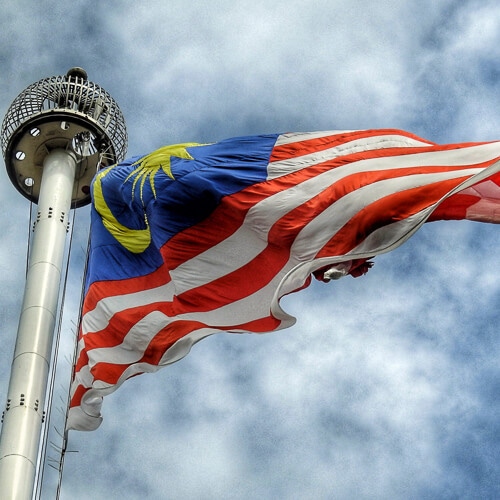
The clouds have finally cleared for Malaysia's much-delayed 5G rollout, with the six leading telcos agreeing on terms to invest in the government-backed 5G wholesaler DNB.
In an apparent last-minute backdown by the government, the telcos will be allowed to own 70% of DNB between them, local media reported Thursday.
June 30 was the deadline for the agreement, although Finance Minister Zafrul Abdul Aziz has said he would extend it into early July.
This is a reversal from a month ago when Aziz denied a request from the big four MNOs that they be allowed to own 51% of DNB (see Malaysia govt, telcos on collision course over 5G wholesale plan).
Figure 1:  The agreement finally paves the way for the launch of 5G commercial service 18 months behind schedule.
The agreement finally paves the way for the launch of 5G commercial service 18 months behind schedule.
(Source: mkjr_ on Unsplash)
The agreement ends a standoff between the government and the four leading operators – Celcom, Digi, Maxis and U Mobile – who have been opposed to the single wholesale network since it was unveiled two and a half years ago.
Two smaller operators, state-owned Telekom Malaysia and YTL Communications, signed on to the DNB terms last month.
The government has refused to retreat on its single network plan, which it says will reduce duplication but still allow service competition. Earlier this year it also rejected the operators' proposal for a second, privately-owned 5G network.
Besides backing down on the ownership limits, the government has also responded to operators' concerns about the cost of wholesale access with a price review every three years.
The agreement finally paves the way for the launch of 5G commercial service 18 months behind schedule.
18 months behind schedule
While the Malaysian telecom industry has been stuck at the starting grid, neighbors Singapore, Thailand, Vietnam and Philippines have all launched commercial 5G services.
Details of the DNB ownership structure have not been revealed, however. That includes how it will treat the pending merger of Celcom and Digi, which has just been approved by regulator MCMC.
Will the new entity, which will be the biggest operator by revenue and customers, be allowed to consolidate the two DNB holdings? Or will they be forced into a divestment?
Want to know more? Sign up to get our dedicated newsletters direct to your inbox.
The two firms have already had to jump through some hoops for the MCMC, according to a stock exchange filing Wednesday.
They've promised to jettison Celcom's Yoodo brand, along with 70MHz of spectrum in the 1800MHz, 2100MHz and 2600MHz bands, and to continue providing wholesale services to MVNO customers on existing terms.
They've also committed to investing 250 million Malaysian Ringgit (US$57 million) over the next five years in an innovation center.
The merger still requires the approval of the Securities Commission and shareholders. It is expected to be completed in the second half of this year, with Axiata and Telenor each holding a 33.1% stake.
Related posts:
— Robert Clark, contributing editor, special to Light Reading
Read more about:
AsiaAbout the Author(s)
You May Also Like












